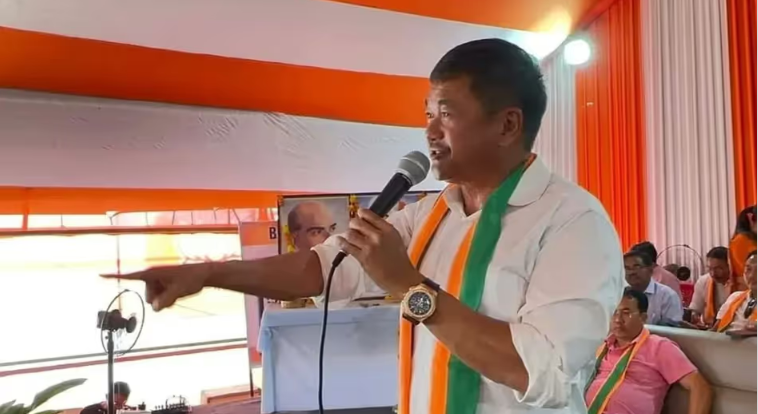
Reacting sharply to the statement of Tuliram Ronghang, Chief Executive Member (CEM), Karbi Anglong Autonomous Council, over the internally displaced Kuki people from Manipur owing to the ongoing violent conflict, two Kuki organizations – Kuki Inpi Assam (KIA) and Kuki Students Organisation (KSO) strongly refuted the claims, stating that Ronghang’s assertions were unfounded, misleading, and potentially inflammatory, possibly exacerbating existing ethnic tensions.
The controversy stems from statements made by Tuliram Ronghang, claiming that approximately 1,000 members of the Kuki community have migrated to Karbi Anglong from Manipur due to the ongoing ethnic violence in the state. Ronghang further suggested that a meeting with Karbi and Kuki leaders would be convened to discuss the relocation of these individuals.
The organizations emphasized that such remarks could create unnecessary fear and animosity between communities and called for restraint and responsible discourse from political leaders.
In their joint statement, KIA president Thanglun Changsan, secretary Henlen Haolai, KSO president Lalhaothang Haolai, and secretary David Changsan—expressed shock and dismay, calling Ronghang’s remarks contradictory, baseless, and deeply concerning.
The Kuki leaders pointed out that Ronghang’s recent claim contradicted his earlier statement that the alleged 1,000 Kuki migrants had already been deported back to Manipur. They criticized the inconsistency as undermining credibility.
Also Read | APHLC Responds to CEM Tuliram Ronghang's Statement on Kuki-Zo Displaced Persons in Karbi Anglong
They argued that the claim of 1,000 migrants settling in Karbi Anglong was unrealistic, given the significant visibility and resources that such a movement would necessitate. They highlighted the lack of any substantial evidence or reports of large-scale aid efforts required for such a settlement.
The Kuki leaders emphasized that migration to Karbi Anglong during the ongoing violence in Manipur was highly improbable. They stated that Kuki communities in Manipur are focused on protecting their villages, properties, and lives amidst the conflict.
They cited strict directives from village leaders in Manipur, discouraging residents from abandoning their villages. Those who temporarily relocated to safer areas were ordered to return promptly, under the threat of losing their claims to homes and properties once peace is restored. This, they asserted, further debunked claims of mass migration.
The Kuki organizations highlighted the potential harm of such statements, which they described as both inflammatory and divisive. They urged political leaders to exercise responsibility and avoid comments that could exacerbate inter-community tensions in the region.
The KIA and KSO expressed concern that such statements could undermine peace efforts and contribute to spreading the communal violence from Manipur to Assam. They criticized the apparent attempts by “certain elements” to provoke communal discord.
Despite the provocations, the organizations affirmed their commitment to preserving peace and unity in Assam. They emphasized their dedication to preventing the seeds of communal hatred from taking root in the state.
The Kuki groups appealed to people of all communities—regardless of tribe, caste, or religion—to reject false narratives and baseless allegations. They called for the upholding of values such as truth, peace, and harmony to maintain stability and unity.
The call to focus on shared values and truth highlights the need for responsible discourse from all parties, particularly in a region where ethnic dynamics are highly sensitive and volatile.

The Hills Journal
K. Salbung, Churachandpur
Manipur-795128